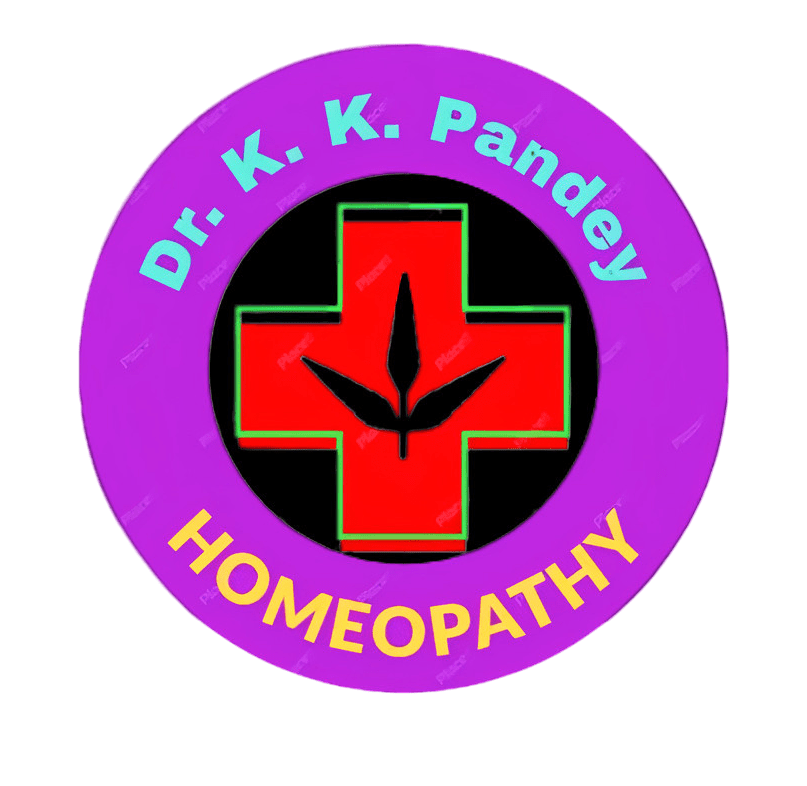What is Homeopathy Medicine? This question arises in our mind when we see the small-sized white globules.
Introduction to Homeopathy
Table of Contents
- 0.1 Introduction to Homeopathy
- 0.2 How Homeopathy Works
- 0.3 Conditions Treated by Homeopathy
- 0.4 What are the 7 Basic Principles of Homeopathy?
- 0.5 Understanding Vital Force
- 0.6 Safety and Side Effects
- 0.7 Homeopathic vs. Conventional Medicine
- 0.8 Research and Scientific Perspective
- 0.9 Choosing a Homeopathic Practitioner to Know deeply “What is Homeopathy Medicine”.
- 0.10 Homeopathy Myths Debunked
- 0.11 Homeopathy and Chronic Conditions
- 0.12 Popular Homeopathic Remedies
- 0.13 Homeopathy for Mental Health
- 0.14 Integrating Homeopathy into Daily Life
- 0.15 Global Perspectives on Homeopathy
- 0.16 Controversies Surrounding Homeopathy
- 0.17 Conclusion
- 1 FAQs
Homeopathy came into the world in the 18th century. Developed by Samuel Hahnemann, this therapeutic system operates on the principle of “like cures like,” wherein a substance causing symptoms in a healthy person can stimulate healing in someone experiencing similar symptoms.
How Homeopathy Works
The fundamental concept involves diluting substances to deficient concentrations, a process known as potentization. While it may seem counterintuitive, the dilution is believed to enhance the healing properties while minimizing potential side effects.
Conditions Treated by Homeopathy
Homeopathy addresses many conditions, from common colds to chronic diseases. Its holistic approach considers not just the symptoms but also the individual’s overall well-being, aiming for a balance between the mind and body.
What are the 7 Basic Principles of Homeopathy?
What is homeopathy medicine? It is a system of alternative medicine that was developed in the late 18th century by Samuel Hahnemann. It is based on the principle of “like cures like” and involves the use of highly diluted substances to stimulate the body’s healing processes. The seven basic principles of homeopathy, as formulated by Samuel Hahnemann, are:
1. Law of Similars (Similia Similibus Curentur):
– This fundamental principle states that a substance that causes symptoms in a healthy person can be used to treat similar symptoms in a sick person. The idea is that a remedy, when given in a highly diluted form stimulates the body’s vital force to overcome the illness.
2. Law of the Minimum Dose:
– Homeopathy utilizes highly diluted substances, and the principle of the minimum dose suggests that the smallest amount of a remedy that can produce a healing response should be used. The goal is to minimize potential side effects while effectively stimulating the body’s healing response.
3. Single Remedy:
– Homeopathy typically employs a single remedy at a time to treat a person’s overall condition. The idea is to choose a remedy that closely matches the individual’s key symptoms and constitution rather than using a combination of remedies.
4. Individualized Treatment:
– Homeopathic treatment is highly individualized, taking into account not only the specific symptoms of the disease but also the patient’s overall constitution, mental and emotional state, and other individual characteristics. This personalized approach is a key aspect of homeopathic practice.
5. Holistic Approach:
– Homeopathy considers the person as a whole, treating the underlying causes of illness rather than just addressing the symptoms. It takes into account the interconnectedness of physical, mental, and emotional aspects of health.
6. Potentization:–
Potentization involves a process of dilution and succussion (vigorous shaking) of the original substance to prepare homeopathic remedies. The more a substance is diluted and succussed, the higher its potency, and it is believed that this process enhances the healing properties of the remedy while minimizing any potential toxicity.
7. Herings’s Law of Cure:
– This principle describes the expected sequence of healing during homeopathic treatment. It suggests that, as the body heals, symptoms will be resolved in reverse order of their appearance, moving from more vital organs to less vital organs and from the innermost to the outermost parts of the body. This is considered a sign that the healing process is underway.
It’s important to note that homeopathy is a controversial and debated practice within the medical community, and its principles are not universally accepted. Scientific evidence supporting the efficacy of homeopathic treatments should be improved. The principles often conflict with established principles of pharmacology and biochemistry. As with any medical approach, individuals should consult with qualified Homeopathic professionals for guidance on their specific health concerns.
Understanding Vital Force
Role in Homeopathic Healing
The Crucial Role of Vital Force in Homeopathic Healing
In homeopathy, there’s a central concept known as the “vital force.” Think of it as the body’s natural energy or life force that keeps everything in balance and working smoothly.
What is Vital Force?
Imagine your body as a finely tuned musical instrument. For it to produce beautiful music, every part needs to be in perfect harmony. The vital force is like the unseen conductor that ensures all the parts of your body work together harmoniously. When this vital force is strong and balanced, you feel healthy and energetic. But when it gets disrupted, you might start to feel sick or out of sorts.
How Does Homeopathy Help?
Homeopathic Medicine works by gently stimulating this vital force. It uses tiny doses of natural substances to encourage your body’s natural healing processes. These substances are specially prepared to match the unique symptoms you’re experiencing.
Restoring Balance
The goal of homeopathic treatment is to restore balance to your vital force. When the vital force is in balance, your body can heal itself more effectively. This means that homeopathy doesn’t just focus on getting rid of symptoms temporarily. Instead, it aims to address the root cause of the imbalance, helping your body to regain its natural state of health and harmony.
Natural and Gentle
One of the beautiful things about homeopathy is its gentle approach. Since it works with your body’s own healing abilities, it’s considered safe and free from harsh side effects.
This approach is gentle enough for everyone, from young children to the elderly, making it a versatile option for all age groups.
Conclusion
In summary, the vital force is a crucial element in homeopathic healing. By understanding and supporting this natural energy, homeopathic medicine helps your body to restore balance and achieve lasting health. It’s a unique and gentle way to encourage your body’s own ability to heal, ensuring you feel your best from the inside out.
Safety and Side Effects
One of the notable advantages of homeopathic medicine is its minimal side effects. This content is appropriate for audiences of all ages. The gentle nature of homeopathic remedies has led many to explore this option as a complementary or alternative therapy.
Homeopathic vs. Conventional Medicine
While conventional medicine often focuses on alleviating symptoms, homeopathy takes a more holistic route, targeting the root causes of illness. The two approaches, however, need not be mutually exclusive, and integrative approaches are gaining traction.
Research and Scientific Perspective
Scientific studies on homeopathic medicines have yielded mixed results. While some research supports its efficacy, critics argue that the effects are merely a result of a placebo effect. Ongoing debates emphasize the need for more rigorous investigation.
Choosing a Homeopathic Practitioner to Know deeply “What is Homeopathy Medicine”.
Selecting a qualified homeopathic practitioner is crucial to knowing what is homeopathy medicine and for treatment. Look for certifications and relevant qualifications. Personal testimonials can provide insights into a practitioner’s effectiveness and patient satisfaction.
Homeopathy Myths Debunked
Common misconceptions about homeopathy include doubts about its scientific basis and concerns about its effectiveness. It’s important to separate fact from fiction and approach homeopathy with realistic expectations.
Homeopathy and Chronic Conditions
For chronic conditions, homeopathic medicine offers a unique approach. Patients often report long-term benefits, and individualized treatment plans address both the physical and emotional aspects of health.
Popular Homeopathic Remedies
Arnica, known for its anti-inflammatory properties, and Calendula, praised for its wound-healing abilities, are just a glimpse into the vast array of homeopathic remedies. Understanding their uses can empower individuals in managing various health concerns.
Homeopathy for Mental Health
Homeopathy extends its reach to mental health, offering remedies for stress, anxiety, and depression. Tailored treatments acknowledge the interconnectedness of mental and physical well-being.
Integrating Homeopathy into Daily Life
Beyond specific treatments, incorporating homeopathic principles into daily life involves considering lifestyle and dietary factors. Prevention becomes a key focus, promoting overall wellness.
Global Perspectives on Homeopathy
Homeopathy finds a place in various cultures worldwide. While its acceptance is widespread, challenges such as regulatory issues and ethical concerns persist, prompting ongoing discussions.
Controversies Surrounding Homeopathy
Regulatory frameworks and ethical considerations have sparked controversies around homeopathy. Critics argue for more stringent standards, while proponents emphasize the importance of individualized care.
Conclusion
In conclusion, homeopathy provides a holistic approach to health, emphasizing the interconnectedness of physical and mental well-being. While controversies persist, individuals are encouraged to explore and make informed choices regarding their health.
Also read- 7 Best food for naturally controlled blood pressure
FAQs
- Is homeopathy backed by scientific evidence?
- Scientific studies on homeopathy have yielded mixed results. While some research supports its efficacy, ongoing debates emphasize the need for more rigorous investigation.
- Can homeopathy be used alongside conventional medicine?
- Yes, homeopathy and conventional medicine need not be mutually exclusive. Integrative approaches are gaining traction, offering a more comprehensive approach to health.
- Are homeopathic remedies safe for children?
- Yes, one of the advantages of homeopathy is its minimal side effects, making it suitable for people of all ages, including children.
- How do I choose a qualified homeopathic practitioner?
- Look for certifications and relevant qualifications. Personal testimonials can provide insights into a practitioner’s effectiveness and patient satisfaction.
- Are homeopathic remedies effective for chronic conditions?
- Many patients report long-term benefits for chronic conditions with individualized homeopathic treatment plans.





